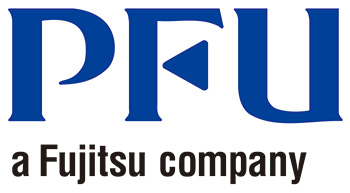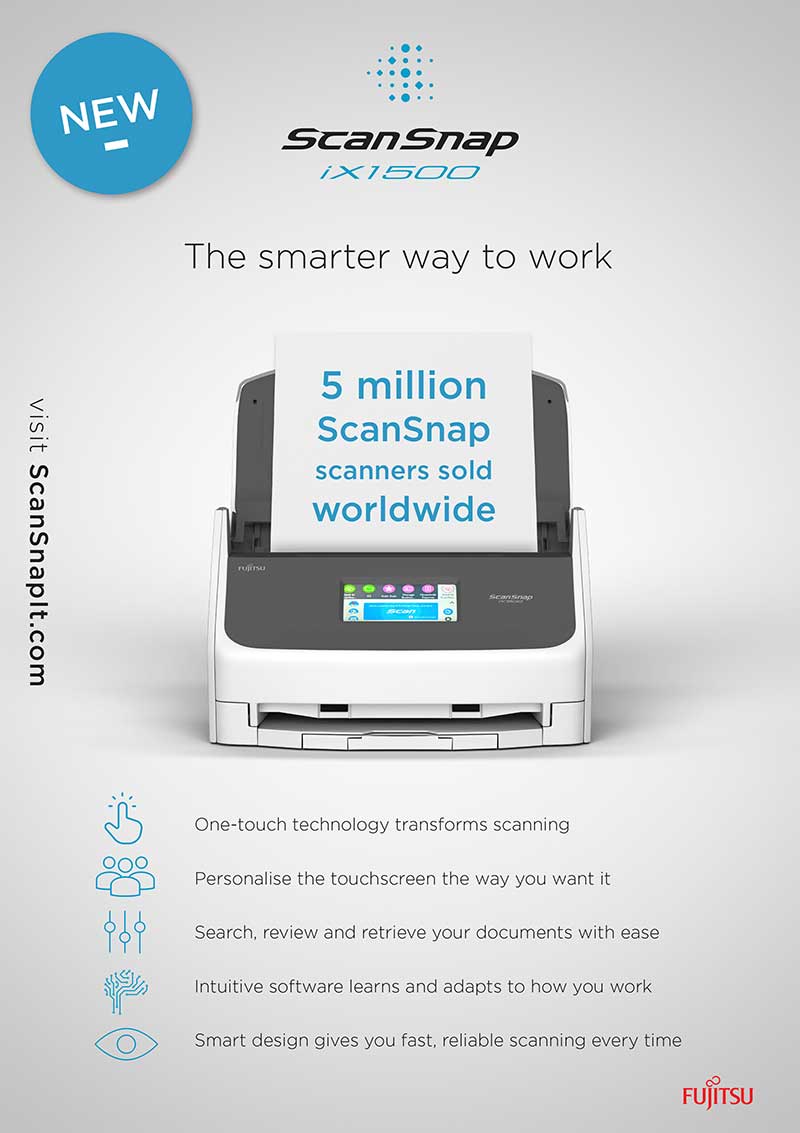
PFU EMEA, a Fujitsu Company, recently published a report examining how digital transformation is enabling Organisational Intelligence. By drawing on new research with 1200+ IT and business decision-makers from across Europe, it highlighted the ambitions behind digital transformation journeys.
To allow you to look critically at your organisation, it also focuses on the triggers that underpin activity, highlights risks to mitigate against, and showcases how organisations are achieving success using information capture.
Organisational Intelligence is the capacity of an organisation to derive maximum value from its information. It involves the ability to create flexible knowledge pathways that add value at every stage to every employee. An intelligent organisation uses insight to adapt to its environment or marketplace strategically. PFU’s latest research illustrates that 35% of organisations do not yet have a clear plan for digital transformation. Using the information in the report can help you plan and succeed.
Poor processes, inefficient workflows, and information management issues are nothing new. Business leaders face these challenges every day. For too many, however, the status quo remains. For those that do seek change, what is the trigger that starts digital transformation?
At the start of any digital transformation journey, consultation with employees and staff is essential. When they begin to understand the need for and the capabilities of digital transformation, the opportunity to address other business challenges may come to light. In fact, by analysing how the different demographics within an organisation respond and react to challenges, and define and underpin the transformation itself. Automation of business processes can begin from this point.
Driving Organisational Intelligence through digital transformation must be a tailored process for every organisation, in line with your core challenges and objectives. Whilst the unique nature of your organisation demands an individual approach; the analysis illustrates that both education and technology selection are vital areas that must be approached strategically. Firstly, education and the development of new skills and knowledge is outsourced to industry leaders. This assistance is often required to bring essential clarity to the initial stages of transformation. External industry leaders provide invaluable experience. They have been through the process before. Specialists can also assist your organisation by asking the right questions to understand the situation. They will also ensure that crucial stages of the process will not be overlooked.
To plot your digital transformation journey successfully, you must align your digital transformation vision with the mission and strategy of your organisation. This will provide authority to begin and continue the journey, helping to overcome obstacles and distractions, as well as supporting the change management efforts that will be required. Question the vision of the later stages of your digital transformation journey. Where do you want your organisation to go? Identify operational and process efficiency quick wins to deliver fast results and support the ongoing journey.
Business processes can be leaner, costs reduced, and in staff productivity improved by capturing the information held on paper and sharing them with staff. Operational level projects are a manageable way to add momentum to the overall digital transformation journey.
Scanning and information capture enables the faster, more flexible movement of data – a necessity for improved Organisational Intelligence – and is, therefore, a logical first step of the digital transformation journey. It allows for the use of even more advanced IT and analytical solutions. Always hold the end in mind and question how this will need support in future stages. Digital transformation is not just about the physical process. It also opens doors for new ways of thinking and future-proofing the organisation from product innovation through to revolutionising customer service.
Find Out More:
Find out more about the Fujitsu Image Scanners Organisational Intelligence Research Report 2020 >

Fujitsu scanner aids homeworking at Worcestershire County Council
Philip Bouchier is Information Manager at Worcestershire County Council and manages the Council’s Records Management Team which is responsible for storing, retrieving, disclosing and disposing of over 40,000 boxes of physical records.
The team fulfils requests for information held on paper documents daily, by first finding the physical copy, and then scanning and emailing it. Here he explains how the Fujitsu fi-7700 scanner has fitted into the Council’s Corporate Information Management Unit (CIMU).
The Council supports some of the most vulnerable people in society, has responsibility for visible public services like maintaining roads and pavements, street lighting, household waste sites, libraries and country parks to name but a few. It currently oversees around £900m of public expenditure per year – which includes funding for schools and capital investment – and receive around 70% of residents’ overall Council Tax bills. Approximately 60% of the net revenue budget is spent on social care services for vulnerable children and adults.
Any employee within Worcestershire County Council could request a particular file or topic, and this request would originate from a member of the public or from that employee. The proposal would be made via a request form or directly from FileTrack – the Physical Records Management System. Once the request is received, the team must retrieve the documents and disclose them within a two working day period, so speed is of the utmost importance.
Previously the Corporate Information Management Unit had used dedicated scanners and multi-function devices (MFDs) to fulfil Subject Access Requests (SAR) and Freedom of Information (FOI) Requests. However, whilst the scanners worked well on clean, unmarked A3/A4 paper documents, a typical paper record might be creased, have varying paper thickness and quality, slowing down the scanning process and prompting the unit to look for a better solution.
The Council researched various options and tested out other scanner models and found the Fujitsu fi-7700 model to be a great fit for their requirements. The A3 capable fi-7700 is a heavy-duty production scanner for professional use, with a document feeder capacity of up to 300 sheets, and scanning at speeds of up to 100 pages per minute. What’s more, different types of documents, such as thin paper, plastic cards, books, magazines, envelopes, and long page documents can easily be scanned with user-friendly operability, intuitive, high-quality image creation and real-time processing that will benefit post scan routines like OCR.
As a result of the COVID-19 pandemic, a scan-on-demand service was fast-tracked to meet the organisational requirements of employees working from home. The scanned paper files allowed colleagues to continue to work remotely while ensuring the integrity of the record and safety of the employee. The fi-7700 scanner has delivered dramatic improvements in the results and speed of scanning of the typical social care, planning and legal files at the Council. The team has been thrilled with the results, and Bouchier concludes that they would be happy to recommend the scanner to other organisations.












